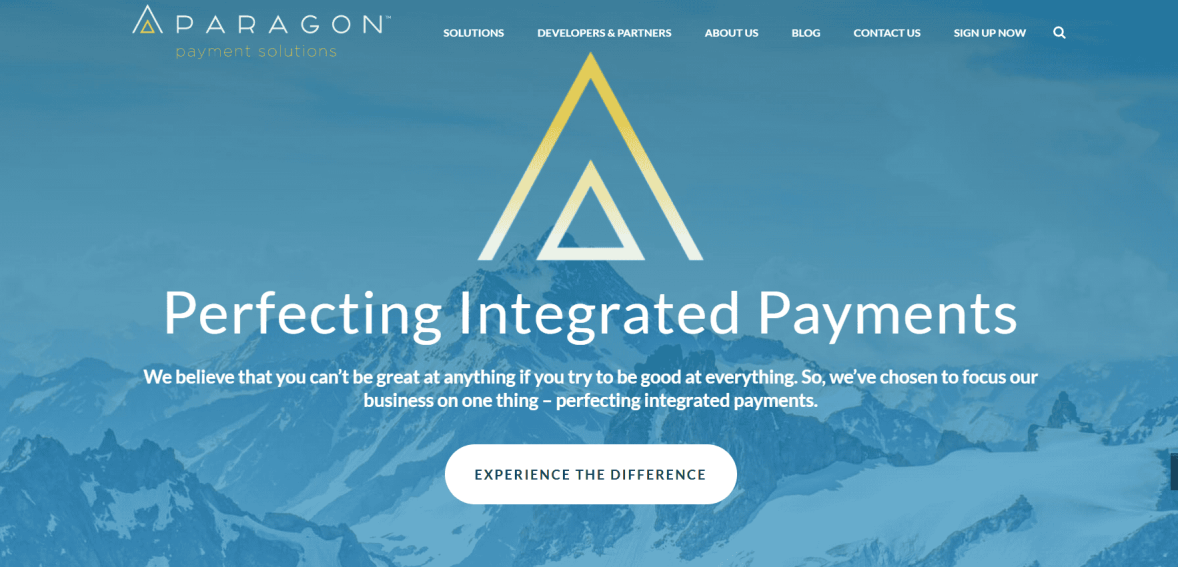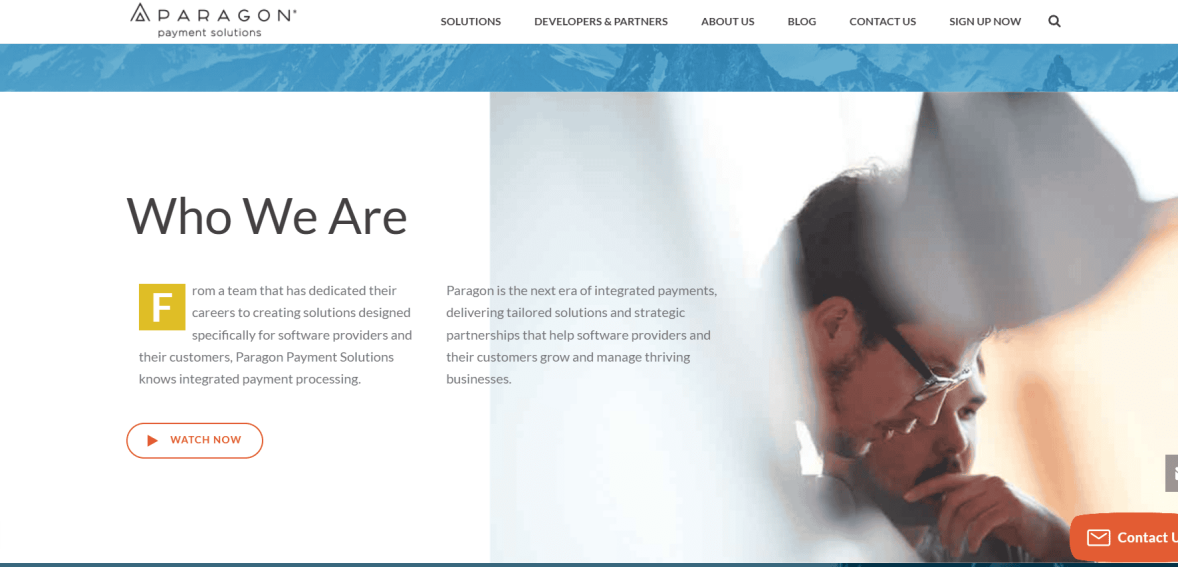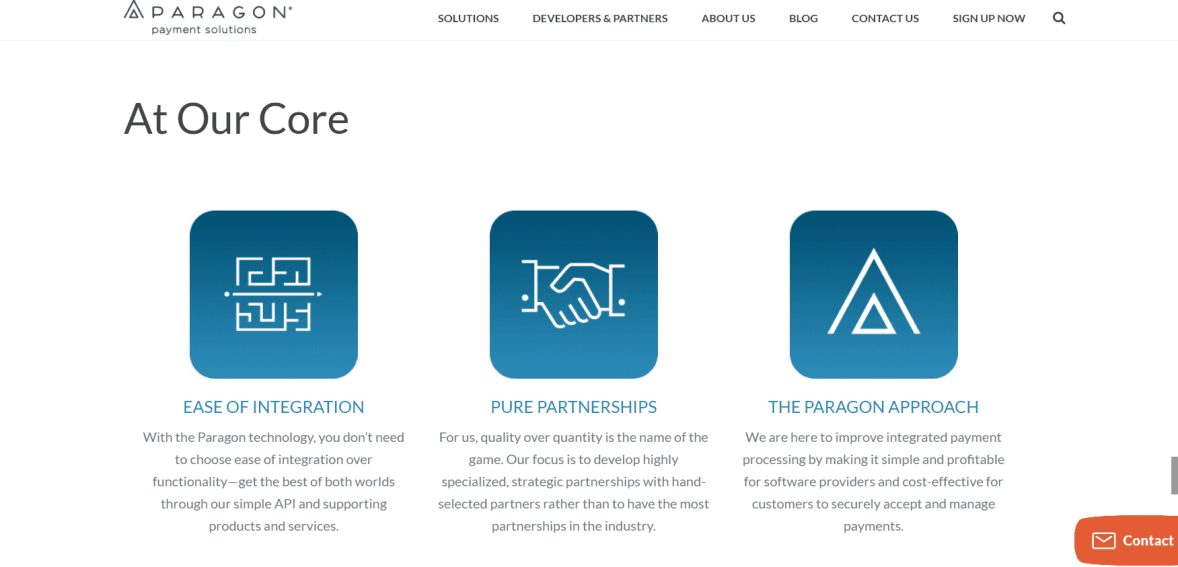Paragon Payment Solutions Review

Paragon Payment Solutions is a U.S.-based payment processor that caters specifically to Independent Software Vendors and platforms built around proprietary software. Rather than serving everyday merchants or retail businesses, Paragon focuses on integrating payment processing directly into third-party software products. Lets read more about Paragon Payment Solutions Review.
Its services are designed to help software companies retain full control of the payment experience. Instead of directing users to external portals or third-party checkout pages, Paragon empowers developers to embed payment functionality within their own applications.
Though not a household name in the payment space, Paragon has carved out a niche by addressing the evolving needs of software providers. As more digital platforms seek to handle transactions internally, Paragon plays the role of backend enabler, allowing seamless, branded payment flows that fit natively within user interfaces.
This makes Paragon an ideal partner for platforms looking to offer fully integrated commerce capabilities. However, businesses without in-house development resources may find its offerings too complex for their needs.
Core Services and Capabilities | Paragon Payment Solutions Review
Paragon offers a suite of payment tools designed for embedded use in software platforms. These services allow ISVs to accept many payment types while controlling the user experience.
At the heart of Paragon’s platform is merchant processing. It supports credit and debit card payments, ACH transfers and recurring billing which is essential for SaaS providers and subscription based services. These features are supported through a flexible payment gateway that allows omnichannel transactions across online and in-person environments.
Paragon also offers white-label capabilities. Software companies can present payment interfaces under their own brand, no third party branding that could break user trust. This white-label approach makes the payment experience feel like a native part of the software. Other features include tokenization, secure customer data storage, fraud mitigation tools and robust reporting. These features ensure compliance with regulatory standards and give software companies better visibility into transaction data.
Paragon’s deep integration options is more than just transaction handling – it allows software platforms to deliver a complete and secure commerce journey.

Integrated Payments for ISVs
One of Paragon’s biggest strengths is its alignment with ISVs and their technical ecosystems. The company provides infrastructure and services that allow software vendors to natively embed payment features into their products. Developers are supported with APIs, SDKs and webhooks that allow fine grained control over payment logic, customer onboarding and reporting. These tools are key to delivering a payment experience that feels natural and fully integrated with the core product.
ISVs also benefit from Paragon’s revenue share model. Through this software vendors can earn a share of the transaction fees generated on their platform. It’s a way for platforms to generate new revenue without increasing user pricing. It also facilitates merchant onboarding and underwriting. This means ISVs can get their clients set up for payment acceptance faster, which speeds up time-to-market and reduces administrative complexity.
But companies without development teams or the desire to build custom payment flows may find Paragon more than they need. The platform’s full potential is best realized by ISVs with the resources to implement and maintain an integrated payment system.
Payment Gateway Infrastructure
Paragon’s payment gateway is central to its value proposition. It supports card-present and card-not-present transactions, ACH payments, and recurring billing; making it suitable for both physical and digital environments. The architecture is built for flexibility and performance. Tokenization is used to securely store card data, allowing repeat billing without exposing sensitive information. This is particularly useful for platforms that depend on subscription revenue.
Security is a key focus. Paragon maintains PCI DSS Level 1 certification, implements point-to-point encryption, and offers fraud detection tools. These security layers help ISVs protect user data and reduce potential liabilities. The gateway also comes with developer-centric features. Sandbox environments, webhook tools, and documentation help streamline testing and deployment. Rather than locking users into rigid templates, It provides flexibility for teams to customize workflows and tailor the payment experience.
However, integrating the gateway may require technical support and ongoing maintenance. For smaller platforms or non-technical teams, the implementation could prove resource-intensive.
Pricing and Revenue Models
Paragon doesn’t publish fixed pricing on its website, which is common for B2B processors that offer custom solutions. Pricing often varies based on transaction volume, integration complexity, and partner-specific monetization agreements. The company typically uses an interchange-plus model. This approach is considered more transparent than flat-rate pricing, especially for high-volume transactions. In this model, partners pay the actual card network fees plus a markup, helping them better understand the cost breakdown.
One of the most appealing aspects for ISVs is the opportunity to monetize their payment flow. Through Paragon’s revenue-sharing model, software providers can collect a portion of transaction fees, turning payment processing into a source of recurring income. While Paragon is known for being flexible with its pricing, it’s essential for prospective clients to request a detailed quote. Reviewing contracts for early termination clauses, PCI compliance charges, and monthly minimums is recommended.
Although the flexible pricing model is a strength, it also demands more initial engagement to evaluate the total cost of ownership.

Developer Tools and Technical Support
Paragon offers strong developer support, which is critical for ISVs embedding payment functionality. The company provides detailed API documentation, testing environments, and direct technical assistance throughout the integration process. The REST-based APIs offer granular control over everything from transaction flow to user onboarding. Developers can create branded checkout pages, manage tokenized data, and configure billing workflows within their own application.
Paragon also pairs clients with integration specialists. These experts assist with architecture planning, troubleshooting, and deployment, which helps reduce time-to-launch and avoids common roadblocks. Ongoing support continues post-implementation, including updates on API changes, monitoring tools, and alert systems. This ensures that platforms remain secure and functional as they grow.
While these features are excellent for developer-heavy teams, platforms with minimal technical staff may find the onboarding more complex than prebuilt solutions.
Security, Risk, and Compliance
Security is a top priority for Paragon, making it a dependable partner for platforms handling sensitive payment data. The company is PCI DSS Level 1 certified, the highest standard in the payment industry. It uses tokenization to substitute card data with secure tokens, which allows recurring billing without exposing real card numbers. Point-to-point encryption is used to safeguard data during transmission, adding another layer of protection.
Fraud prevention is also built into the platform. ISVs can customize filters, monitor transaction velocity, and apply rules to limit fraudulent activity. This is particularly important for platforms with high transaction volumes or large user networks. The company supports PCI compliance assistance and can help onboard merchants with minimal experience in security protocols. This is a significant value-add for ISVs with clients who need compliance guidance.
However, Paragon does not focus on serving high-risk industries such as firearms or CBD. Businesses in those sectors may need to explore other providers that specialize in high-risk payment environments.
Customer Support and Relationship Management
Paragon emphasizes personalized service, with a dedicated team that supports partners through onboarding, integration, and ongoing use. Support is available through multiple channels, including phone, email, and ticketing portals. During setup, ISVs are assigned specialists who assist with testing environments, technical configurations, and merchant onboarding.
One unique feature is Paragon’s two-tiered support system. ISVs receive help for both their own platform and for managing customer-facing issues, which reduces pressure on internal customer support teams. Reviews often highlight Paragon’s responsiveness and technical knowledge. While they may not offer 24/7 support, the quality of their assistance is generally seen as strong for their market.
Businesses that value direct access to knowledgeable staff and hands-on support will find this approach beneficial. However, those seeking instant support during off-hours may need to set realistic expectations.

Strengths and Limitations
Paragon is great for ISVs that need flexible embedded payment solutions. Customizable payment experiences, earning revenue from transactions and strong technical support are the big advantages. Security is another plus with robust data protection and PCI compliance built in. It supports multiple payment types (card-present, online, ACH) so it’s a good choice for software companies.
But it’s not for everyone. Small merchants, startups without dev teams or those that need turnkey POS systems will find the integration too complicated. It doesn’t have the out-of-the-box templates that come with mainstream processors like Square or Stripe. In short, Paragon is for businesses with the technical resources to build and manage their own experience.
Who Should Use Paragon?
Paragon is a good fit for Independent Software Vendors, SaaS platforms, ERP systems and vertical specific tools like healthcare, education or membership management software. These businesses benefit from Paragon’s deep integration, brand control and monetization opportunities. By embedding payment flows into their platform they can simplify billing, increase retention and open up new revenue streams.
Paragon is also good for ISVs who want to build a cohesive white labeled payment experience for their end users. The ability to onboard, comply and support multiple client accounts adds a lot of operational value. But small retailers, restaurants or entrepreneurs without custom software will likely find Paragon too complex. Businesses that operate internationally should also consider if Paragon’s US centric model fits their global strategy.
FAQs
Q1: Is Paragon Payment Solutions suitable for small businesses without a software platform?
No, it is built primarily for software companies. Businesses without integration needs or development teams may prefer more plug-and-play processors.
Q2: Does Paragon support international payments?
Paragon’s core focus is on U.S.-based transactions. While international support may exist, it is limited and depends on specific use cases.
Q3: Can ISVs generate revenue through Paragon’s platform?
Yes, Paragon offers revenue-sharing models that allow software vendors to earn income from the payment processing activity within their platforms.





